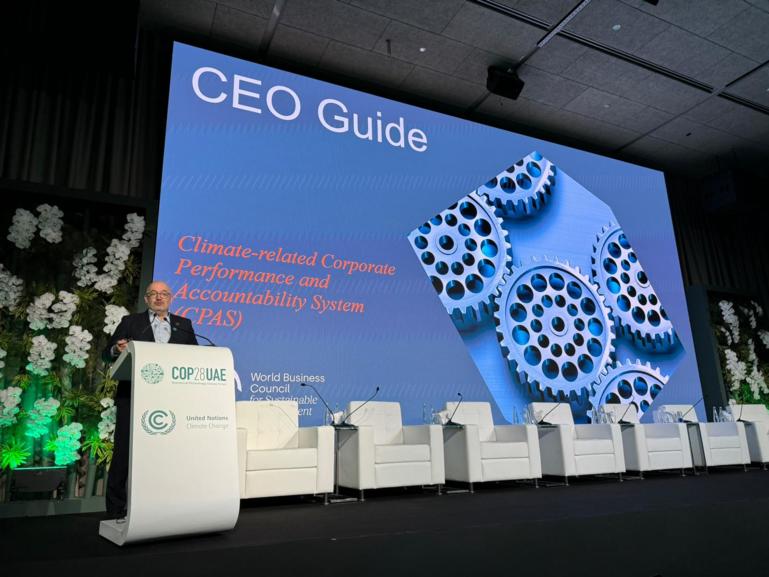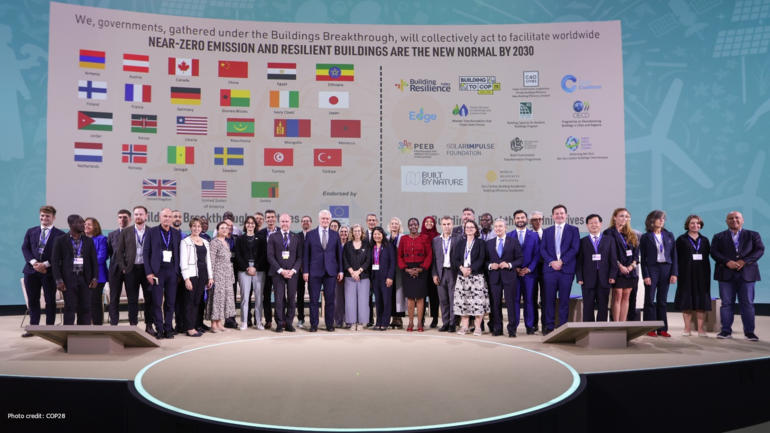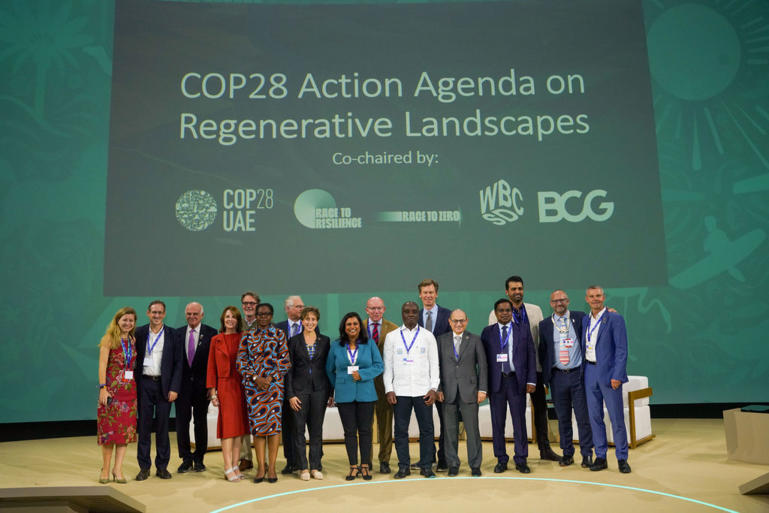At COP28, WBCSD continued its mission to drive sustainable transformations in businesses and their value chains. We emphasized science-driven solutions and collaborated across sectors to combat climate challenges.
We brought together the world's leading businesses, calling for an urgent systems transformation on climate action that can be unlocked by the Climate-related Corporate Performance and Accountability System (CPAS).
WBCSD played a central role in mobilizing business climate action in Dubai. We acted as a delivery partner for the Business and Philanthropy Climate Forum during the World Climate Action Summit, we co-chaired the private sector track of the with Boston Consulting Group (BCG), and we served as the Industry Focal Point for the Marrakech Partnership for Global Climate Action.
Our key announcements at COP28 showcased these principles, reinforcing our commitment to actionable solutions and responsible business practices.
Corporate Performance and Accountability
- WBCSD’s President & CEO, Peter Bakker launched the CEO Guide to the Climate-related Corporate Performance and Accountability Systems (CPAS), a comprehensive approach pathway to align business performance and innovation with decarbonization, at the Business and Philanthropy Climate Forum.
Energy and Green Industrialization Transition
- During COP28, we co-launched the Industrial Transition Accelerator initiative, the world’s largest effort to date to decarbonize heavy-emitting industries.
- The Breakthrough Agenda announced a partnership with us to strengthen public-private cooperation to scale up clean technologies by 2030.
- 118 countries have signed the pledge to triple renewable energy and double energy efficiency by 2030. WBCSD is a partner of the 3x Renewables campaign.
- Leading companies formed collaborative agreements in India and Mexico to drive investments in ZEV as part of the Zero-Emission Vehicles in Emerging Markets Initiative (ZEV-EMI), co-led by WBCSD. Additionally, the Collective for Clean Transport Finance, hosted by WBCSD, announced the launch of lighthouse projects to support global deployment of zero-emission buses, medium and heavy-duty freight and two- and three-wheelers.
- 28 countries have pledged their commitment to the Buildings Breakthrough with the goal to make near-zero emissions and climate-resilient buildings the new normal by 2030. WBCSD supports the Buildings Breakthrough through the Built Environment Market Transformation initiative, uniting stakeholders along the full value chain behind collective actions to achieve the 2030 goals
Transforming Food Systems
- We co-launched the Action Agenda on Regenerative Landscapes, a landmark initiative that aims to transition 160 million hectares to regenerative agriculture, partnering with 3.6 million farmers worldwide.
- We backed the Non-State Actors Declaration on Food Systems, along with over 150 signatories, to call for global targets and transition pathways to be established by COP29. WBCSD has mobilized the private sector to contribute to this shared vision, and we have worked with our members to develop a supporting Business Statement of Action, highlighting the commitments of businesses to contribute to the collective effort needed.
Nature Positive for Climate Action
- We were officially announced as a member & business partner of the G7’s Global Alliance on Nature Positive Economies (G7ANPE) - a voluntary platform aimed at guiding the transition to Nature Positive Economies (NPEs).
At the conclusion of COP28, President Sultan Al Jaber presented the results of the first Global Stocktake, marking a significant shift in UN language, and mentioning a "transition away" from fossil fuels for the first time. UNFCCC Executive Secretary Simon Stiell highlighted this agreement as the "start of the end" for the fossil fuel era. The final text emphasized not only the transition away from fossil fuels, but the tripling renewables and doubling of energy efficiency to achieve net zero emissions by 2050, with limited roles for carbon capture, storage, and transitional fuels. Despite this, the agreement lacks specifics on transition financing, a crucial aspect to bridging the current gap between pledges and progress.The outcome of the Global Stocktake is a good first step from a complicated COP process, but not enough given the urgency of the climate challenge. The world will increasingly look to business to turn these words into action, fast and at scale.
A more substantial analysis of the agreement will be available on our website. Stay tuned.




